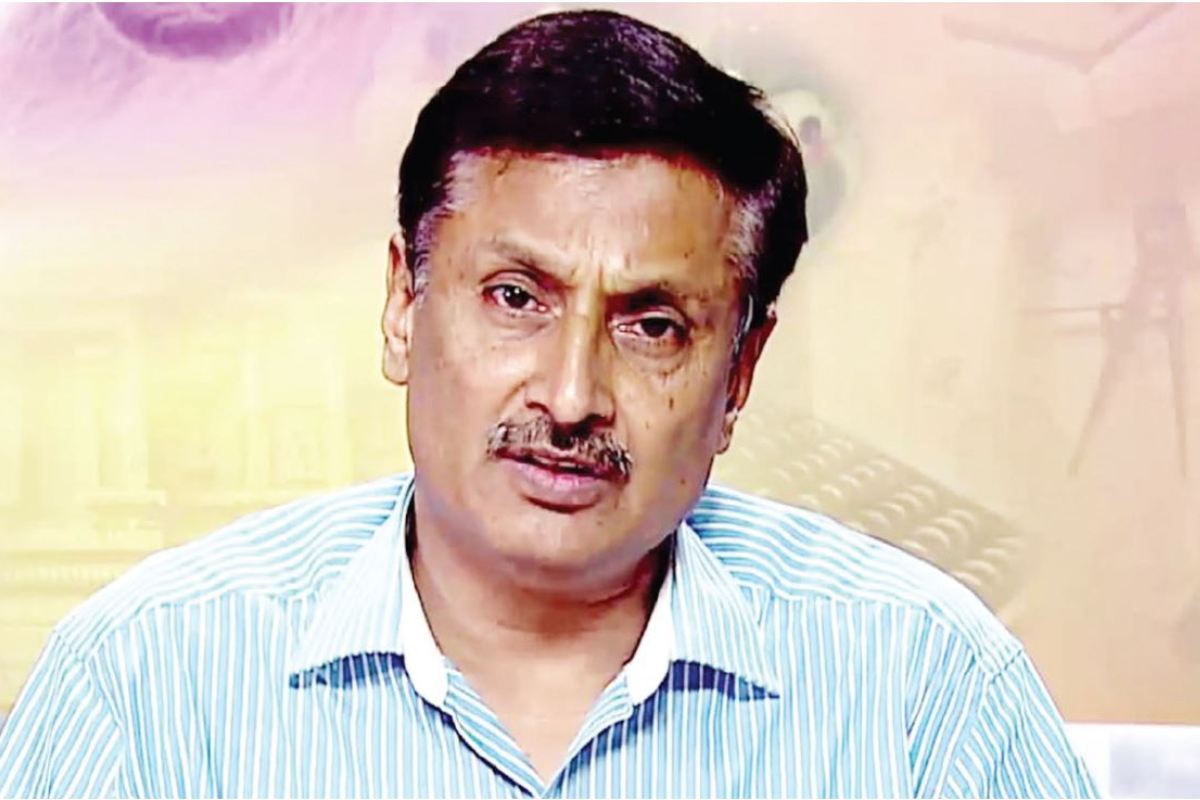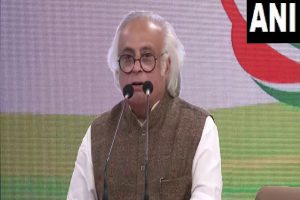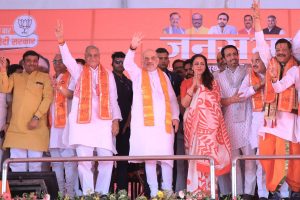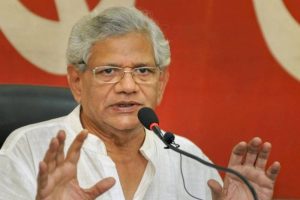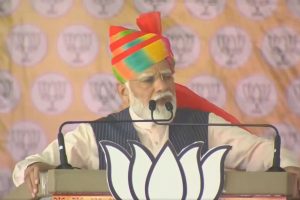When it comes to imparting quality education to children at the elementary, secondary and senior secondary levels, Professor Chandra B Sharma, chairman, National Institute of Open Schooling (NIOS), minces no words about the need for revamping the school education system and its management in India. Recipient of many awards for his contribution to distance and teachers’ education, especially in the digital domain, he is a votary of making industrial training and entrepreneurship an intrinsic part of schooling. As an academician of repute in various policy formulation bodies engaged in managing school education, he has underlined the need for streamlining the school eco-system by bringing all schools, state-run as well as private, under a single umbrella in line with the UGC. In an interview with DIPANKAR CHAKRABORTY, Sharma said the time had come for suitable legislation. Excerpts:
Q: Why was the need for an open school felt and when did National Institute of Open Schooling (NIOS) come into being?
A: We had a very poor schooling system in India, post Independence. The focus was on higher education. We did not have a focus on school education. So, much of the funding was also diverted to higher education. I would like to critique it: why was school education at the receiving end of our education system? We had a fairly good number of private schools where the children of rich and who’s who went. So, nobody ever cared that the poorest of poor and downtrodden were not in school. In 1990 the World Bank took note that two-thirds of illiterates were in South Asia, mainly in India. They took note because they had to spend the money. Our government never got the alert: why there was only 5 or 7 or 12 per cent participation in higher education? Our focus right after Independence should have been on school education. But it never happened. Then, as an alternative, a system to certify and not educate those who missed out on education came into being. They wanted a 12th class certificate to rise in their professions. Thereafter a non-formal schooling system was started. That’s how National Institute of Open Schooling (NIOS) was born, initially as a cell in the CBSE. When it grew out of proportion it was given an independent status of a national open school.
Q: Is NIOS curriculum as good as CBSE or any other existing curriculum in the country?
A: NIOS and CBSE follow the national curriculum framework. But NIOS offers a large number of subjects that are practical and useful to the children. A large number of students don’t find physics, chemistry and biology of interest. Some children told us they wanted to study physics, but mathematics was not their cup of tea. They wanted to do physics with music, perhaps to understand music better. So, we have given them the choice. NIOS curriculum is as rigorous as any other board. But since we are non-formal, we don’t have a system of regular classes or teaching. The onus of learning is on the learners. They can come for clarification of doubts from our counsellors. It is much more relaxed with no peer, parent or teacher pressure on children. It is for those who missed the first opportunity. But if the relevant age group wants to join our schooling, they should be independent in learning. Students can take exams as per their convenience and time frame. If adopted by all boards, such a system can ease pressure from students. I compliment the Prime Minister for his Pariksha Pey Charcha and sensitising students about taking exams without fear and pressure.
Q: Can NIOS be an alternative to regular schooling?
A: Learning from NIOS is akin to home schooling, a concept increasingly gaining currency in India and other parts of the world. We have many students who have excelled while following their love for music, sports, social service, politics, etc., and passed out of NIOS. But I am also not denying the importance of schooling which is just not transfer of education. Being with the peer group is important but I think home schooling should also be promoted. Non-formal schooling gives children the opportunity of being with peer group as well as let them follow their passion. It offers great flexibility to learners.
Q: Do you see any lacunae in the current regular schooling system, and have you tried to address those through the NIOS?
A: Traditional schooling in India has been too rigid. Look at the schooling in other countries. I am happy some of the rules are being relaxed now. Like this year onwards CBSE will no longer insist on PCM (physics, chemistry and mathematics). Now students can take physics with economics and whatever other subjects available. NIOS did it long back. CBSE has of late done a lot of things that would relax the system and ease pressure on learners.
Q: Educationists have expressed concern over exceptionally high percentage of marks scored by many students in this year’s board exams saying it would encourage cramming and not learning. Do you agree with this view?
A: We need to look at our system of assessment and evaluation. We have not really worked on that. A lot of university research work done in the field is in libraries and with award-granting bodies but is not implemented. The secretary, school education and literacy in the HRD ministry, entrusted with the task of managing the school system, is not a professional. We need to have a professional body to manage and monitor school education. NCERT (National Council of Educational Research and Training) is only about curriculum and research that is not implemented. It has not made any impact. We should have a statutory body created through an Act of Parliament to monitor and manage school education.
Q: How do you ensure quality of curriculum for NIOS students?
A: For every course we have an expert committee comprising members from across the country to decide on the curriculum. The best teachers are selected to write the content. Our course material is in self-instructional mode, complemented by our television broadcasts. We have two TV channels for secondary and senior secondary students. It gives our students access to lectures of best teachers in schools. As the world’s largest open school, we are doing brilliant work and are recognised as the best distance education provider of the world.
Q: There is a perception among students and parents that if you have nowhere to go then go to NIOS.How correct or incorrect is this perception?
A: It is not a right perception. The reason for this is it came after the CBSE. In its initial days NIOS should have established itself as a standard, quality board. We don’t have our own institutions. We rely on the traditional system that did not take us seriously. When we expected them to teach our students in their classroom they did not. As a result, our exams slipped because we did not have our own staff to conduct exams. We are very affordable and thus short of funds to improve quality. In the last few years we have brought quite a bit of respect to NIOS certificates. It is not so easy to obtain. Our pass percentage is less than 30 per cent, as against 80 to 90 per cent in other boards. We are very rigorous.
Q: How easy or difficult is it for an NIOS student to shift to mainstream schooling system?
A: Both CBSE and NIOS are boards of Central government. There should be no problem in switching over from one board to another. I have been in discussion with CBSE. I am sure in future CBSE would not hesitate to take students from NIOS board.
Q: Why was the need felt for incorporating vocational courses in the NIOS curriculum?
A: We provide professional training courses of students’ interest alongside the regular school curriculum. We have allowed students to take one vocational subject. For example, if someone is doing leather work, he can take up leather technology alongside other academic subjects and get a certificate in that. I want to make it clear that we do not produce certified students to search for jobs but for self-employment.
Q: How best can the NIOS harness its full potential and become an instrument of training people for various sectors of the economy?
A: There is a large demand for health workers in the country. The Bihar government approached us and we signed an MoU with them. We have trained 20,000 of ‘Jhola Chaap’, a synonym for health workers, and all of them are now employed with the state government on high salaries. There is a large demand for skilled persons in various sectors and we can fill that demand-supply gap. According to NITI Aayog, there is a need for 70 lakh health workers across the country. NIOS can train them through distance education. We could have trained one crore health workers in the country in 2014-2019. This could have transformed the entire health sector. We have trained 15 lakh school teachers in the last 18 months. This has changed the face of primary school education.

